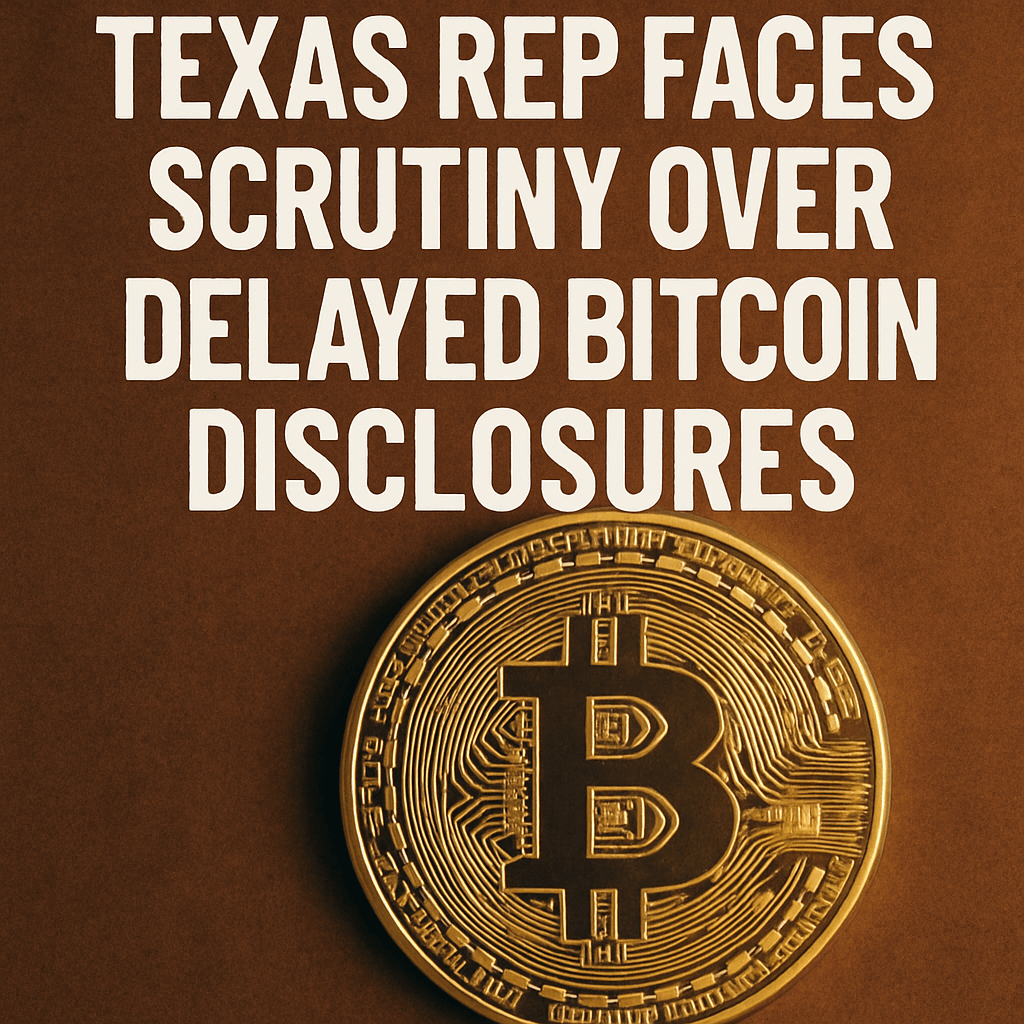Texas Rep Faces Scrutiny Over Delayed Bitcoin Disclosures


Texas State Representative Brandon Gill is currently facing significant scrutiny and backlash after it was revealed that he filed late disclosures for substantial Bitcoin trades amounting to $500,000. This development has raised alarms not only regarding the integrity of his financial dealings but also potential violations of the STOCK Act, a law designed to combat insider trading and to promote transparency among government officials.
Understanding the Allegations
The STOCK Act, enacted in 2012, mandates that members of Congress disclose any stock and securities trades within 45 days. Gill’s late disclosures have triggered questions regarding whether he may have engaged in trades based on nonpublic information while serving the public as a legislator. The timing of these trades, coupled with his position, inevitably places greater scrutiny on his actions.
Following an investigation, it was reported that Gill filed these disclosures weeks past the deadline, with some reports indicating a potential discrepancy of several months. Such tardiness has aroused suspicion regarding his motivations, as the cryptocurrency market is often volatile and subject to rapid price fluctuations.
Implications of Bitcoin Trading for Public Officials
Bitcoin and cryptocurrencies, while rapidly growing in popularity, also pose unique regulatory challenges. In the United States, public officials trading in cryptocurrencies might be accused of insider trading if they leverage confidential information about legislation that could affect crypto regulations. The signs of a conflict of interest can be particularly damaging for public trust.
- Market Volatility: Cryptocurrencies can experience extreme price swings within short periods. A public official’s trading during pivotal moments can raise ethical concerns.
- Increased Scrutiny: Regulatory authorities are now paying closer attention to public officials involved in cryptocurrency transactions, leading to fears of non-compliance with existing regulations.
- Potential Legislative Impact: Decisions made by lawmakers regarding cryptocurrency policies can have direct ramifications on their personal financial interests if they own significant crypto assets.
Expert Opinions on the Situation
Experts in financial ethics emphasize that the challenge of aligning cryptocurrency trading with existing legislative frameworks is ongoing. Dr. Angela Waters, a professor of financial ethics at a leading university, suggested that this incident underscores a more profound need for clear regulations specifically tailored for digital assets within the political landscape. “The intersection of cryptocurrency and public service embodies complex ethical dilemmas that necessitate further examination and potential reformations of existing laws,” Dr. Waters stated.
Moreover, some analysts suggest that if violations are confirmed, Gill may not only face political fallout but could also encounter legal repercussions, including fines or other sanctions. Maintaining transparency in government operations remains critical, especially as cryptocurrency usage continues to rise.
The Broader Context: Cryptocurrency Regulations
As the cryptocurrency ecosystem continues to mature globally, various regulatory frameworks are emerging. Recent proposals in Congress aim to address taxation, security considerations, and compliance mechanisms specifically for digital assets. Nevertheless, the lack of a cohesive regulatory environment means that legislators like Gill are navigating uncertain waters.
In the backdrop of Gill’s situation, multiple government agencies, including the U.S. Securities and Exchange Commission (SEC), are ramping up their focus on regulating cryptocurrency trading and investment, further amplifying the need for public officials to align their activities with these evolving laws.
As this situation develops, it remains critical to monitor legislative responses both from Gill and the broader Texas government in terms of policymaking regarding financial transparency and cryptocurrency regulations.
Conclusion
The scrutiny faced by Representative Gill sheds light on critical issues surrounding transparency, ethical standards, and regulatory compliance in the cryptocurrency domain. This incident may serve as a bellwether for future discussions about the integrity of public officials engaged in the digital asset space. Stakeholders, including voters and policymakers, will be watching closely as this story unfolds.